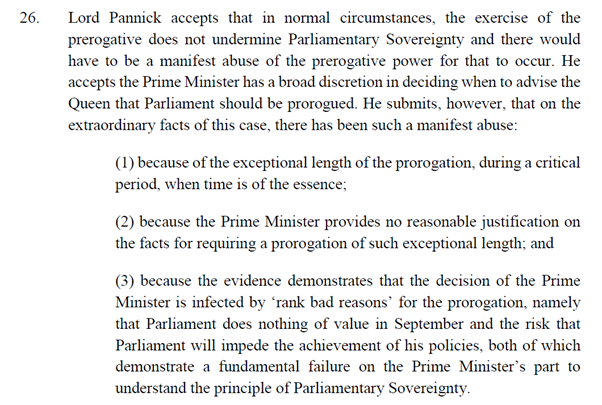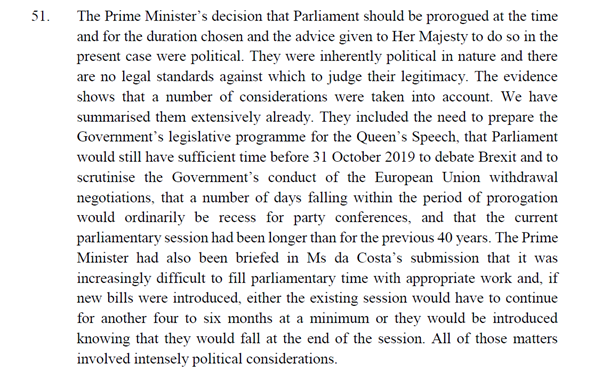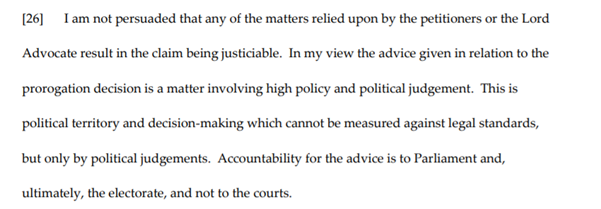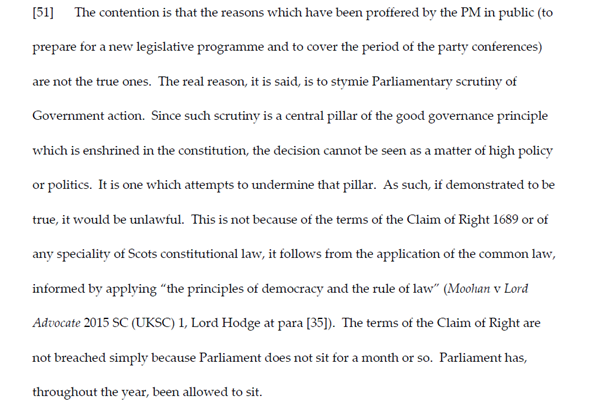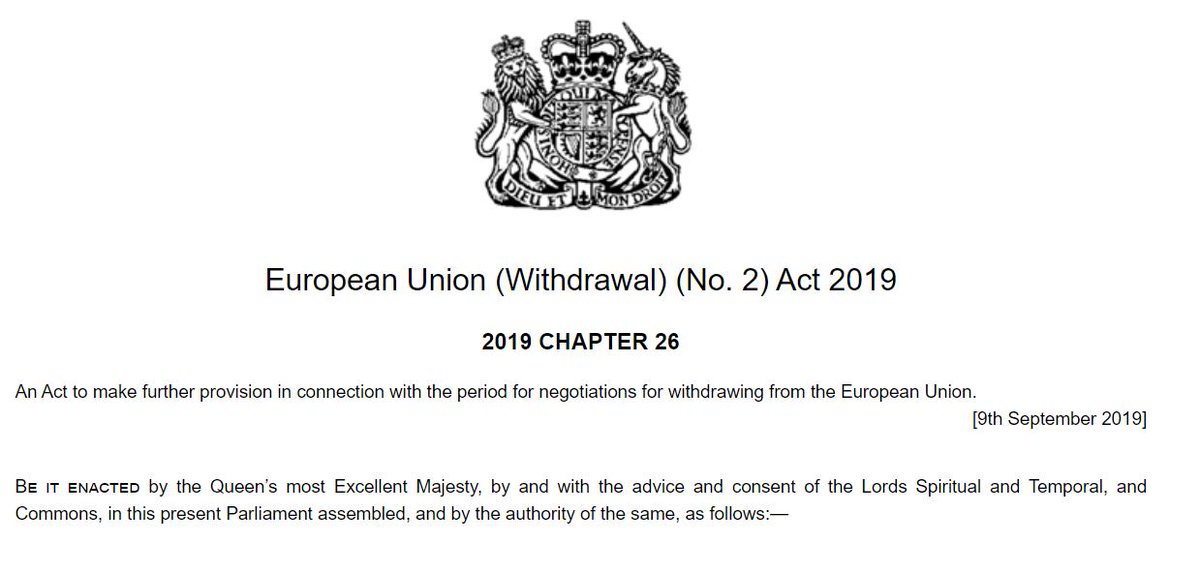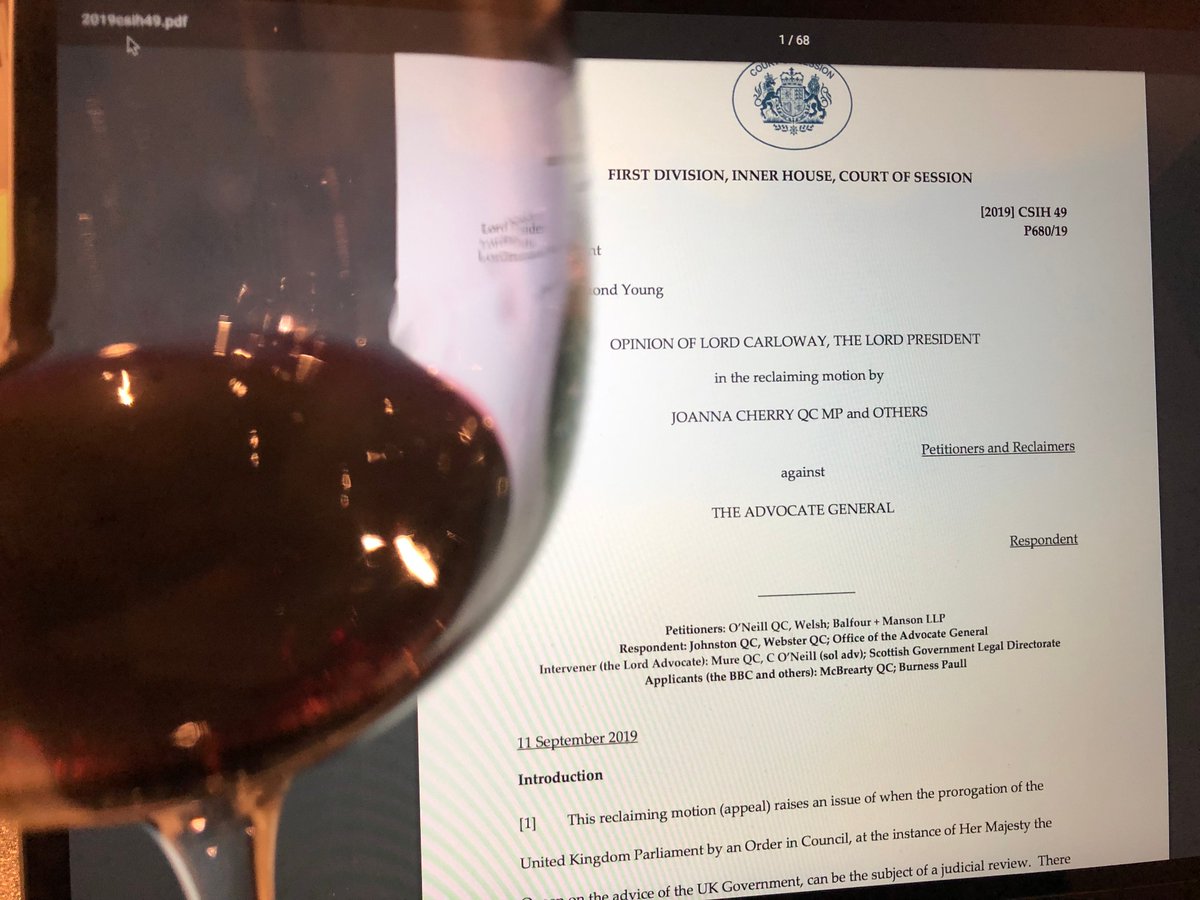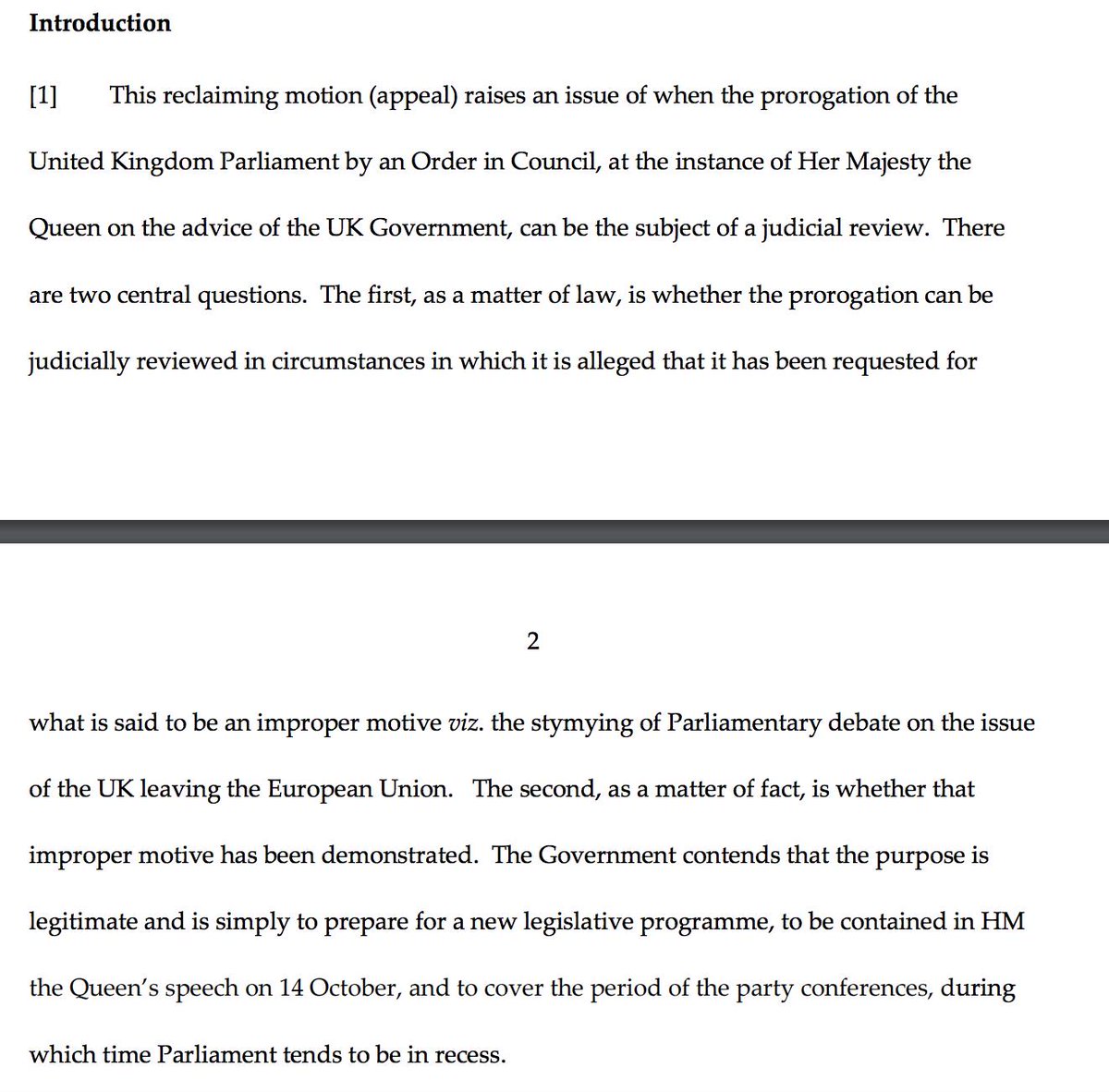1/
3/
8/
i) they cannot currently scrutinise no-deal prep or the renegotiation, and
ii) if the government tries to evade the effect of the Act, MPs may have no time to pass another.
9/
10/
11/
ukconstitutionallaw.org/2019/09/13/tim…
12/
ukconstitutionallaw.org/2019/07/12/rob…
13/
ukconstitutionallaw.org/2019/09/10/pau…
ukconstitutionallaw.org/2019/09/02/pau…
14/
publiclawforeveryone.com/2019/09/12/pro…
15/
ukconstitutionallaw.org/2019/09/16/has…
16/
ukconstitutionallaw.org/2019/09/13/ali…
/ends
supremecourt.uk/live/court-01.…

